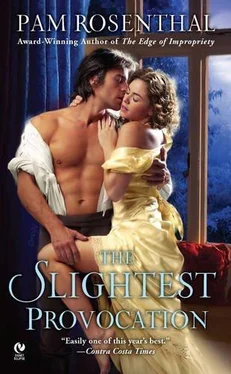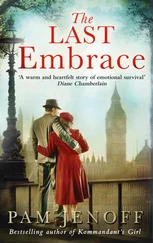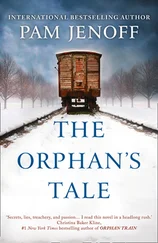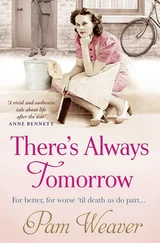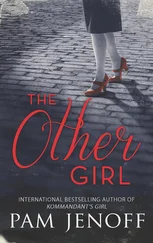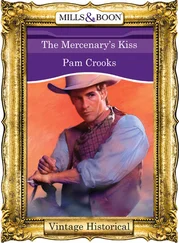The capital was larger, louder, busier, but not so awe-inspiring anymore, now that he was older and had spilled his blood for it. Better that way. Dearer. England. Home. His and (even if she would make her disapproving observations about the Lord Liverpool’s government) Mary’s home as well. He wanted to protect it.

“Everything in good order, my lord, especially since I took the liberty of investing a thousand in Mr. Bakewell’s new manufactory. Lady Christopher has done very well to direct her, ah, separate funds in that direction, and I didn’t think you’d find it amiss to profit from it as well.” Shumway’s plump face glistened pink behind silver-rimmed spectacles, his surprisingly slender fingers precise as he traced the history of Kit and Mary’s still-linked finances, trapped in clear rows and columns of pounds, shillings, and pence.
He’ll be taking care of your money, the old marquess had said, after Kit and Mary had returned from Gretna.
“My solicitors met with Penley’s,” his lordship had continued. “We’ve settled some money on you. Cleared up some other long-overdue business too. Penley conceded his risible claim about the estate boundary. In return, he took the opportunity to stipulate some clever ways to keep some funds apart for her in trust-just so you don’t suppose, Christopher, that your new father-in-law”-he’d fairly spat out the word-“is any happier about this, um, misbegotten alliance than I am-or more sanguine about its chances for success.”
The money in trust had its own column in Shumway’s ledger, next to her settlement from the separation. And yes, Kit was definitely rich enough to pay for the Act of Parliament necessary to obtain a divorce.
“Nothing amiss, Mr. Shumway, so long as I’m benefiting from it. Rather what I pay you for, I expect-perhaps you should invest another thousand if Mr. Bakewell’s prospects are really so good. And the man so capable, so… trustworthy.”
Indeed, quite so, the money man agreed. Excellent prospects, and very forward-looking too: the earlier, smaller manufactory a model of efficient yet humane employment of labor. “He conducts tours of it, you know, for investors and charitable sorts. The ladies quite enjoy it, him being such a well-spoken gentleman, quite tall and well-looking too, Mrs. Shumway says…”
Kit glanced carelessly at his fine new pocket watch, “My word… the time. I must scamper. Thanks, as always, for your excellent… ah, and well wishes to the very discerning Mrs. Shumway…”

More pleasant, the welcome he got at White’s. Toasted as a hero, stood to an excellent dinner. He settled back to lose a little at whist, win it back at piquet. Placed a few bets on the most trivial items he could find: the Earl of Derby’s favorite fighting cock, the cost of the Duke of Ennisbourgh’s divorce, and whether Mr. Smythe-Cochrane could down three bottles of port every day for a fortnight. And learned that bets had recently been laid on him.
“With your eldest brother’s illness, and then there’s only that nephew, the viscount, standing between you and the marquisate. Reckless boy, broke his arm last year hunting…”
“But of course Kit must have his own bets laid on his fortunes.” Henry Claringworth was a particularly unpleasant specimen of the genus Nobilus Britannicus. Kit could remember him flirting, languidly and patronizingly, with Mary one night. ( I’d like to kick him, she’d said.)
The talk made its inevitable way to women; his memory turned to a particular earlier conversation in this high-ceilinged room. Thin, bored voices echoed over the chasms of the years.
But you can’t only be making love to your wife, Stansell.
Why? Well, because it’s indecent, that’s why.
No question that she’s very pretty and all that. But you wouldn’t always get your champagne from the same vintner, would you?
Though not champagne, I expect. In her case it would rather be ale, wouldn’t it?
A laugh all around. Claringworth had laughed the hardest.
No matter. Penley brews the best ale in Britain. Surely his daughter should be made milady for that. Must have set you up with lots of blunt, Kit. Well done.
Following it up, soon enough, with a challenge. What, never had two girls together-really?
Shamefaced at twenty-two, he’d had to admit he hadn’t. Not until that night. But often after that.
To find out what they all found so thrilling.
To turn his darker passions to the sort of women who were paid to tolerate it-for he’d begun to fear that it wasn’t right to implicate Mary in so much playacting. She seemed to like it as well as he did-but could a lady really?
Most importantly perhaps, to demonstrate to all and sundry that though it might look like a rich old brewer had bought his daughter a Stansell for a husband, Lord Kit was under no obligation to anyone, and was free to do whatever he liked.
As now he most indubitably was.
For all she (and her tall, well-spoken Mr. Bakewell) might care.

Hell, he’d lost count of his cards.
Looking up into Claringworth’s wide, guileless eyes, he affected a careless smile as his opponent played his trump and took him for two hundred pounds.
“He’ll need it,” Raikes murmured, “to support that mistress of his. And that pair of… grays for his phaeton.”
Claringworth laughed and put down his cards, and sauntered off. “Think I’ll be going, to make use of my winnings. My woman needs to be coaxed, my wife to be consoled, rather.”
Hope you kicked him bloody hard, darling. Kit followed Claringworth out of the room.

Back at Park Lane, he had a cold supper brought into the library. Time to prepare for tomorrow’s dinner conversation.
The Parliamentary Committee’s report had been published in Gentleman’s Magazine the prior February. First time he’d read it, he’d been put off by its inflated, rather fatuous language. Rather like some of the dreadful diplomatic prose spun out at Vienna. Still, he’d mastered diplomatic communication-just as (with a little help) he’d mastered Latin. Soon, he promised himself, he’d be reading reports like this one with ease.
He gave a short bark of embarrassed laughter, remembering something foolish he’d once said. It had taken a decade to learn he couldn’t play and carouse all the time. His afternoon at White’s had rather driven the lesson home.
Upon second reading, however, the important words of the Committee of Secrecy’s report rather leaped out at one.
… The widely diffused ramification of a system of clubs associated professedly for the purpose of Parliamentary Reform… to include every village in the kingdom…
… Whatever may be the real object of these clubs in general, your Committee have no hesitation in stating… particularly in those which are established in the… districts of Lancashire, Leicestershire, Nottinghamshire, and Derbyshire, and… composed of the lower sorts of artisans, nothing short of a revolution is the object expected and avowed.
Was it true? Was there evidence to back it up?
The committee couldn’t reveal the sources of their information. Which meant that it came from informants. Unpleasant, the notion of Englishmen spying on their fellows. What was worse than unpleasant was what he’d learned from military intelligence: information so gathered wasn’t necessarily reliable.
Читать дальше
